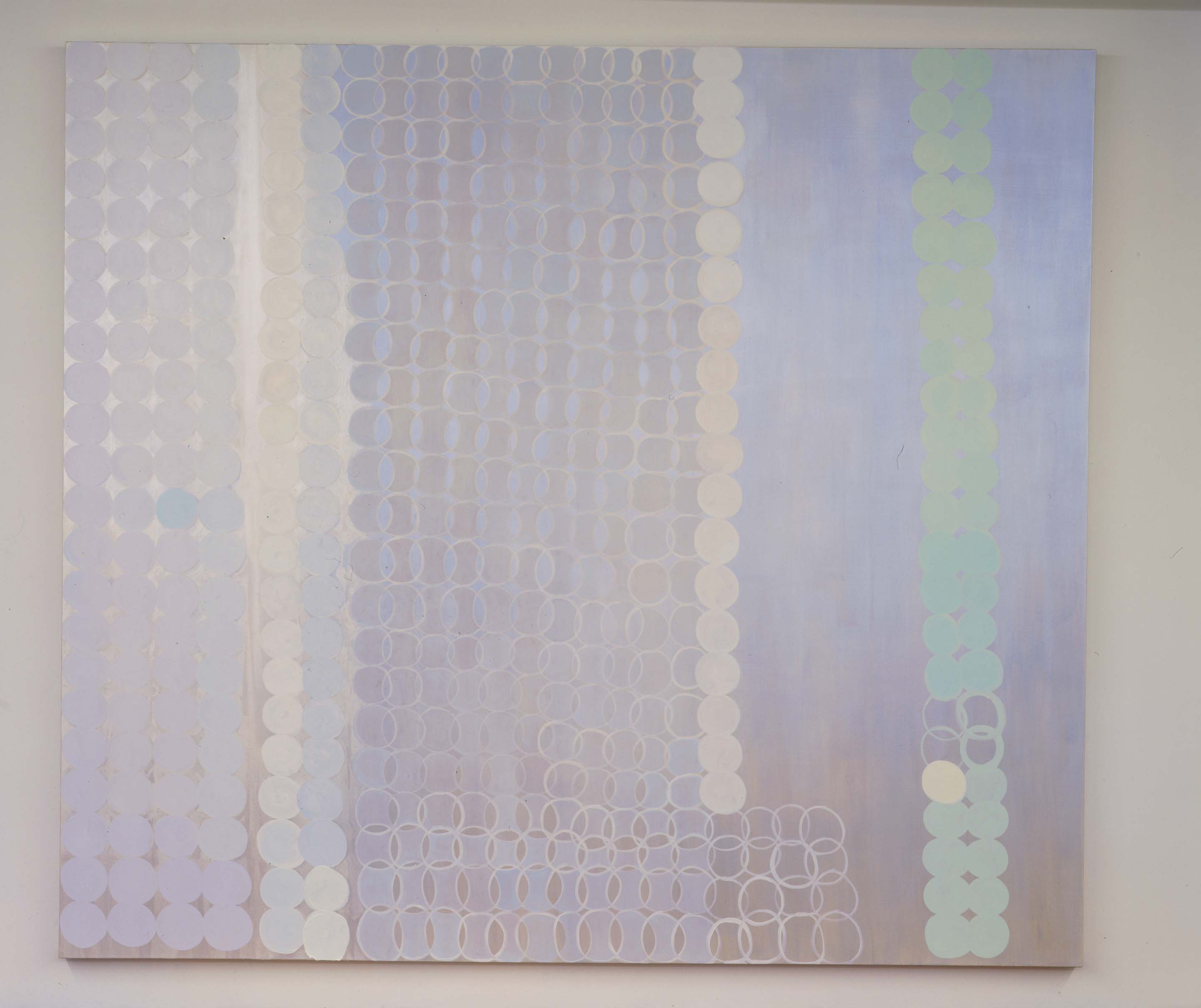- Judy Ledgerwood: Cold Days

Judy Ledgerwood, Flamenco Sketches, 1998.

Judy Ledgerwood, Flamenco Sketches, 1998.

Judy Ledgerwood, Cold Days, Installation View, 1999.

Judy Ledgerwood, Cold Days, Installation View, 1999.

Judy Ledgerwood, Flamenco Sketches, 1998.

Judy Ledgerwood, Freddy, 1998.

Judy Ledgerwood, Detail of Freddy, 1998.

Judy Ledgerwood, Cold Days, Installation View, 1999.

Judy Ledgerwood, Cold Days, Installation View, 1999.

Judy Ledgerwood, Cold Days, Installation View, 1999.

Judy Ledgerwood, Detail of Flamenco Sketches, 1999.
For the past decade, Judy Ledgerwood has produced a body of large-scale paintings which recall and reassemble abstract expressionist and other modernist traditions. The scale, compositional devices, use of color, and integrity to the flat picture plane reveal her to be an unabashed modernist. From her early, landscape-based abstractions to her later color-field works, Ledgerwood investigates abstraction’s romantic roots and its repressed relationship to beauty. But in contrast to paintings by Barnett Newman, Clyfford Still, as well as other artists associated with the New York School, Ledgerwood questions the extent to which beauty and high moderism were ever mutually exclusive. For Ledgerwood, what is ultimately at work behind abstract painting’s formalist aspirations, is visual pleasure. For this exhibition at The Soclety, Ledgerwood has produced five new paintings based on winter light. These new works have a lilac-tone palette of subtly modulating fields of blues, greens, and browns extremely muted as to convey the sense of a pale winter light. In two paintings, the use of iridescent paint bathes the surface in a cold shimmering light. Reminiscent of color field paintings, Ledgerwood’s works, however, incorporate dot and circle motifs which form like bubbles in a glass of chilled champagne, lending the works a sense of elegance and glamour.